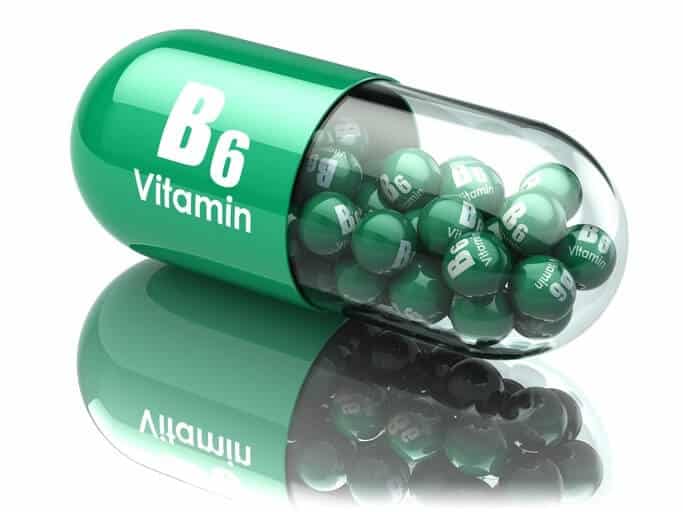Content of the Article
Vitamin A is found in plant and animal sources. Tomatoes, carrots, green and red peppers, spinach, broccoli, green leafy vegetables, melon, fish oil, liver, milk, cheese, eggs are foods containing vitamin A.
Vitamin A is a group of fat-soluble compounds that are extremely important for our health. It has duties such as protecting eye health, maintaining the normal function of the immune system and organs, and helping the baby in the womb to grow and develop properly.

Men need 900 mcg of vitamin A per day, women 700 mcg, children and adolescents need 300-600 mcg of vitamin A per day.
What is Vitamin A?
Vitamin A is a fat-soluble vitamin that acts as a powerful antioxidant in the body. It plays a critical role in maintaining vision, neurological function and skin health. Like all antioxidants, it also reduces inflammation by fighting free radical damage.
Vitamin A exists in two main forms: active vitamin A (also called retinol, which results in retinyl esters) and beta-carotene. Retinol comes from foods of animal origin and is a "preformed" form of vitamin A that can be used directly by the body.
Another variety obtained from colorful fruits and vegetables is in the form of provitamin carotenoids. In order for beta-carotene and other carotenoid types found in plant-based products to be used by the body, they must first be converted to retinol, the active form of vitamin A. Another form of vitamin A is palmitate, which is usually found in capsule form.
Research has repeatedly shown that antioxidants such as vitamin A are vital to health and longevity. It benefits eye health, strengthens immunity and promotes cell growth. Now let's talk about the benefits of vitamin A.
Benefits of Vitamin A

- Protects the eyes from night blindness
Vitamin A is essential for maintaining eyesight. It converts the visible light into an electrical signal that can be sent to the brain. One of the first signs of vitamin A deficiency is night blindness.
Vitamin A is an important component of the rhodopsin pigment. Rhodopsin is found in the retina of the eye and is extremely sensitive to light. People with this condition see normally during the day, but their vision is reduced in the dark as their eyes struggle for light.
Age-related macular degenerationPrevention is also one of the benefits of vitamin A.
- It lowers the risk of some cancers
Cancer occurs when cells begin to grow or divide abnormally and uncontrollably. Vitamin A plays an important role in the growth and development of cells. Therefore, it reduces the risk of developing cancer.
- Supports the immune system
Vitamin A plays a vital role in maintaining our body's natural defenses. It supports the production and function of white blood cells that help trap and clear bacteria and other pathogens from the bloodstream. The conclusion to be drawn from this is the following: In vitamin A deficiency, the risk of getting infections increases and the diseases heal later.
- Supports bone health
Protein, calcium and essential nutrients essential to maintain bone health as we age Vitamin Dis However, consuming adequate amounts of vitamin A is also necessary for bone growth and development, and a deficiency in this vitamin can weaken the bones.
-
Necessary for growth and reproduction
Vitamin A is essential for maintaining a healthy reproductive system in both men and women. It also ensures the normal growth and development of the embryo during pregnancy. In pregnant women, vitamin A plays a role in the growth and development of many major organs and structures of the unborn child, such as the skeleton, nervous system, heart, kidneys, eyes, lungs and pancreas.
- Relieves inflammation
Beta-carotene acts as a powerful antioxidant in the body, reducing the formation of harmful free radicals and preventing oxidative damage in cells. Thus, the level of inflammation in the body decreases. Preventing inflammation is crucial because inflammation is at the root of many chronic diseases, from cancer to heart disease to diabetes.
- Lowers cholesterol
Cholesterolis a waxy, oil-like substance found in the body. The body needs cholesterol to function properly, as it is involved in the synthesis of hormones and forms the basis of cell membranes. But too much cholesterol builds up in blood vessels and causes hardening and narrowing of the arteries, increasing the risk of heart disease. Sufficient amount of vitamin A Taking it naturally lowers cholesterol levels.
- Provides tissue repair
Tissue repair and cell regeneration are provided by adequate amounts of vitamin A. It also supports wound healing.
- Prevents urinary stones
Urine stones usually form in the kidneys and then slowly grow and develop in the ureter or bladder. Some research shows that vitamin A may help prevent urinary stones.

Vitamin A Benefits for Skin
- Eliminates acne problems as it reduces excessive sebum production in the skin. The use of vitamin A in the treatment of acne is very effective.
- Because it is a powerful antioxidant, it reduces the appearance of fine lines, dark spots and pigmentation.
- Vitamin A helps heal warts, sun damage and rosacea. It can be used orally or as a topical application to benefit in these cases.
- Vitamin A helps regenerate skin cells by replacing dead cells. New cells provide a healthy and smooth skin, which reduces stretch marks.
- It normalizes blood flow.
Vitamin A Benefits for Hair
- Vitamin A helps to produce the right amount of sebum in the scalp. This prevents the hair and scalp from drying out.
- Due to its high antioxidant concentration, vitamin A prevents the formation of free radicals, thus protecting the hair from radical damage. It helps to give the hair natural shine.
- Due to its regenerative properties, vitamin A repairs dry and damaged hair strands, making the hair soft and smooth.
- Vitamin A helps regulate sebum production in the scalp. Thus, it reduces the formation of dandruff flakes.
What's In Vitamin A?
It occurs naturally in many foods. Foods containing vitamin A are:
- Turkey liver
- Beef liver
- Pumpkin
- Whole milk
- Dry basil
- Pea
- Tomato
- Spinach
- Carrot
- Sweet potato
- Mango
- Peach
- Papaya
- Cod liver oil
- Grapefruit juice
- Melon
- Turnip
- Dried apricots
- Dry marjoram

- Turkey liver
100 grams of turkey liver provides 1507% of the daily needed vitamin A and is 273 calories. Pretty high amount.
-
Beef liver
100 grams of beef liver meets 300% of the daily amount of vitamin A and is 135 calories.
- Pumpkin
Pumpkin It is a rich source of beta carotene. Beta carotene converts to vitamin A in the body. One cup of pumpkin meets 400% of the daily requirement of vitamin A. It also contains good amounts of vitamin C, potassium and fiber.
- Whole milk
The nutritional content of whole milk is richer than skim milk. A glass of whole milk contains good amounts of calcium, protein, vitamin D, A and magnesium.
- Dry basil
Dry basilIt is rich in vitamin A, which will protect the body against lung and oral cavity cancers. 100 grams of dried basil meets 15% of the daily need for vitamin A.
- Pea
One cup pea, meets 134% of the daily need for vitamin A and this amount is 62 calories. It also contains good amounts of vitamins K, C and B.
- Tomato
A tomatoprovides 20% of the daily required vitamin A. It is also a rich source of vitamin C and lycopene.
- Spinach
One cup spinach It meets 49% of daily vitamin A need. Spinach is also the richest source of vitamin C, manganese, iron, vitamin K and calcium.
-
Carrot
CarrotIt is the first food that comes to mind for vitamin A and eye health. One carrot provides 200% of the daily needed vitamin A. Carrots also contain large amounts of vitamins B, C, K, magnesium and fiber.
- Sweet potato
Sweet potatoIt has high nutritional value. One sweet potato provides 438% of the daily needed vitamin A.
- Mango
Full of healthy nutrients and vitamins mangoOne cup of it provides 36% of the daily needed vitamin A and is 107 calories.
- Peach
Peach It contains good amounts of magnesium, vitamin C, calcium, phosphorus, potassium and iron. One peach provides 10% of the daily needed vitamin A.
- Papaya
Papayameets 29% of the daily needed vitamin A.
- Cod liver oil
Cod liver oil Supplements are the richest source of vitamins and minerals. It is available in liquid and capsule form with extraordinary amounts of A, D and omega 3 fatty acids.
- Grapefruit juice
Grapefruit juiceIt has nutrients such as potassium, vitamin E, vitamin K, phosphorus, calcium, B vitamins, vitamin C, vitamin A and phytonutrients. These essential nutrients fight diseases by supporting the body's immune system.
-
Melon
Melon is low in calories and contains many essential vitamins and nutrients beneficial to health. A slice of melon provides 120% of the required vitamin A.
- Turnip
Turnip is a very low-calorie, nutrient-rich vegetable and contains a significant amount of vitamin A.
- Dried apricots
Dried apricots are a rich source of vitamin A. One cup of dried apricots provides 94% of the daily requirement of vitamin A and this amount is 313 calories.
- Dry marjoram
Dry marjoram It is a rich source of vitamin A. 100 grams provides 161% of the daily needed vitamin A. This amount is 271 calories.

Daily Vitamin A Needs
If you regularly eat the foods listed above, you will easily meet your vitamin A needs. Because this vitamin is fat-soluble, it is more efficiently absorbed into the bloodstream when eaten with fat.
The recommended daily intake for vitamin A is as follows:
| 0 to 6 months | 400 mcg |
| 7 to 12 months | 500 mcg |
| 1 to 3 years old | 300 mcg |
| 4 to 8 years old | 400 mcg |
| 9 to 13 years old | 600 mcg |
| 14 to 18 years old | 900 mcg in men, 700 mcg in women |
| 19+ years | 900 mcg for men, 700 mcg for women |
| Over 19 years old / pregnant women | 770 mcg |
| Over 19 years old / Nursing mothers | 1,300 mcg |
What is Vitamin A Deficiency?
In addition to maintaining eye health, vitamin A is necessary for bone growth, skin health, and protection of the mucous membranes of the digestive, respiratory and urinary tracts against infection. If this necessary vitamin cannot be taken enough or if there is an absorption disorder, vitamin A deficiency may occur.
People with long-term fat malabsorption are more prone to develop vitamin A deficiency. People who are deficient in vitamin A leaky gut syndrome, celiac disease, autoimmune diseases, inflammatory bowel disease, pancreatic disorder, or alcohol abuse.
Vitamin A deficiency causes severe visual impairment and blindness. It increases the risk of serious diseases such as infectious diarrhea and measles.
Vitamin A deficiency is more common in developing countries. Those at highest risk of deficiency are pregnant women, nursing mothers, infants and children. Cystic fibrosis and chronic diarrhea also increase the risk of deficiency.

Who Gets Vitamin A Deficiency?
Vitamin A deficiency is very common in underdeveloped countries due to intestinal infections and malnutrition. Deficiency is the leading cause of preventable blindness in children worldwide. It is the most common nutrient deficiency in the world. People at risk for vitamin A deficiency include:
- People with diseases that affect the absorption of food from the gut,
- Those who have undergone weight loss surgery,
- Strict vegan diets
- Prolonged excessive alcohol intake
- Young children living in poverty
- Newly arrived immigrants or refugees from low-income countries.
What Causes Vitamin A Deficiency?
Vitamin A deficiency results from a long-term insufficient intake of vitamin A. It also occurs when the body cannot use vitamin A from food. Vitamin A deficiency can trigger certain diseases such as:
Diseases seen in vitamin A deficiency
- Celiac disease
- Crohn's disease
- Giardiasis – intestinal infection
- cystic fibrosis
- Diseases affecting the pancreas
- cirrhosis of the liver
- Intestinal obstruction by the flow of bile from the liver and gallbladder
Vitamin A Deficiency Symptoms
- Skin dryness
Not getting enough vitamin A eczema and is a reason for the development of other skin problems. Dry skin is seen in chronic vitamin A deficiency.
- dry eye
Eye problems are among the symptoms that occur in vitamin A deficiency. Extreme deficiency can lead to complete blindness or death of the cornea, called Bitot spots.
Dry eye or inability to produce tears is one of the first signs of vitamin A deficiency. Young children are most at risk of dry eyes in cases of vitamin A deficient nutrition.
- Night blindness
Severe vitamin A deficiency can cause night blindness.
- Infertility and pregnancy problems
Vitamin A is essential for reproduction in both men and women, as well as for proper development in infants. If you are having trouble conceiving, vitamin A deficiency may be one of the reasons. Vitamin A deficiency can lead to infertility in both men and women.
- Delayed growth
Children who do not get enough vitamin A experience growth problems. This is because vitamin A is essential for the proper development of the human body.
- Throat and chest infections
Frequent infections, especially in the throat or chest, can be a sign of vitamin A deficiency.
- Wound not healing
Wounds that do not heal completely after injury or surgery are attributed to low vitamin A levels. This is because vitamin A is an essential component of healthy skin. collagen to encourage its formation.
- Acne development
Vitamin A helps treat acne, as it promotes skin growth and fights inflammation. Deficiency causes the development of acne.
How is vitamin A deficiency diagnosed?
Deficiency is detected as a result of blood tests ordered by a doctor. Doctors suspect vitamin A deficiency based on symptoms such as night blindness. For those who have trouble seeing in the dark, eye tests such as electroretinography can be done to determine if the cause is vitamin A deficiency.
Vitamin A Deficiency Treatment
Mild vitamin A deficiency is treated by consuming more foods rich in vitamin A. Serious Vitamin A Treatment for forms of deficiency is to take daily oral vitamin A supplements.
Can vitamin A deficiency be prevented?
Regular consumption of foods rich in vitamin A will prevent vitamin A deficiency unless there is a very long-term deficiency in the body.
Liver, beef, chicken, oily fish, eggs, whole milk, carrots, mangoes, orange fruits, sweet potatoes, spinach, kale and other green vegetables are the foods containing the most vitamin A.
Eat at least five servings of fruits and vegetables a day.
What are the Harms of Excess Vitamin A?
Vitamin A stored in our body a fat soluble vitamindir. This means that over-consumption can lead to toxic levels.
Hypervitaminosis A is caused by consuming too much preformed vitamin A through vitamin-containing supplements. This is called vitamin A poisoning. Taking supplements and medications can cause vitamin A toxicity.

Vitamin A Poisoning
When there is too much vitamin A in the body, hypervitaminosis A, or vitamin A poisoning, occurs.
This condition can be acute or chronic. Acute poisoning occurs within a short period of time, typically within a few hours or days, after consuming large amounts of vitamin A. Chronic poisoning occurs when large amounts of vitamin A accumulate in the body over a long period of time.
In case of vitamin A poisoning, visual impairment, bone pain and skin changes are experienced. Chronic poisoning can cause liver damage and pressure in the brain. In most people, the condition improves when their vitamin A intake is reduced.
What Causes Vitamin A Poisoning?
Excess vitamin A is stored in the liver and accumulates over time. Taking high-dose multivitamin supplements causes the development of vitamin A poisoning. Acute vitamin A poisoning is usually the result of accidental ingestion when it occurs in children.
Vitamin A Poisoning Symptoms
Symptoms of vitamin A poisoning vary depending on whether it is acute or chronic. Headache and itching are common in both.
Symptoms of acute vitamin A poisoning include:
- Numbness
- Irritability
- Abdominal pain
- Nausea
- Mumps
- increased pressure on the brain
Symptoms of chronic vitamin A poisoning include:
- Blurred vision or other vision changes
- swelling of the bones
- Bone pain
- Anorexia
- Dizziness
- Nausea and vomiting
- sensitivity to sunlight
- Skin dryness
- Itching and peeling of the skin
- breaking nails
- Cracks in the corner of the mouth
- Mouth ulcer
- yellowing of the skin
- Hair loss
- respiratory tract infection
- Mental confusion
Symptoms in infants and children include:
- softening of the skull bone
- Swelling of the soft spot on the top of the baby's head (fontanelle)
- double vision
- bulging pupils
- Koma
The right amount of vitamin A is necessary for the development of the unborn baby. Excessive consumption of vitamin A during pregnancy is known to cause birth defects that can affect the baby's eyes, skull, lungs and heart.
Complications of Vitamin A Poisoning
An excess of vitamin A triggers conditions such as:
- Liver damage: Vitamin A is stored in the liver. Excess vitamin A accumulates in the liver and can cause cirrhosis.
- Osteoporosis: Excess vitamin A accelerates bone loss. It increases the risk of osteoporosis.
- Excessive accumulation of calcium in the body: As the bones break down, calcium is released from the bones. Excess calcium circulates in the blood. When calcium accumulates in the body, bone pain, muscle aches, forgetfulness and digestive problems begin.
- Kidney damage due to excess calcium: Excess calcium and vitamin A lead to kidney damage and the development of chronic kidney disease.
Vitamin A Poisoning Treatment
The most effective way to treat this condition is to stop taking high-dose vitamin A supplements. Most people make a full recovery within a few weeks.
Any complications from vitamin A excess, such as kidney or liver damage, will be treated independently.
Recovery depends on the severity of vitamin A poisoning and how quickly it is treated.
Consult your doctor before you start taking any supplements or if you are concerned about not getting enough nutrients.

To summarize;
Vitamin A, an antioxidant and a fat-soluble vitamin, is the most essential nutrient for maintaining eye health. It also maintains skin health, strengthens immunity and is necessary for growth.
Foods containing vitamin A include tomatoes, carrots, green and red peppers, spinach, broccoli, green leafy vegetables, melon, fish oil, liver, milk, cheese, eggs.
Men need 900 mcg of vitamin A per day, women 700 mcg, children and adolescents need 300-600 mcg of vitamin A per day.
Taking less than necessary leads to vitamin A deficiency. Taking an overdose of vitamin A through a multivitamin supplement causes vitamin A poisoning, which is an excess of vitamin A. Both situations are dangerous. In order not to be exposed to these situations, it is necessary to get vitamin A naturally from food.










